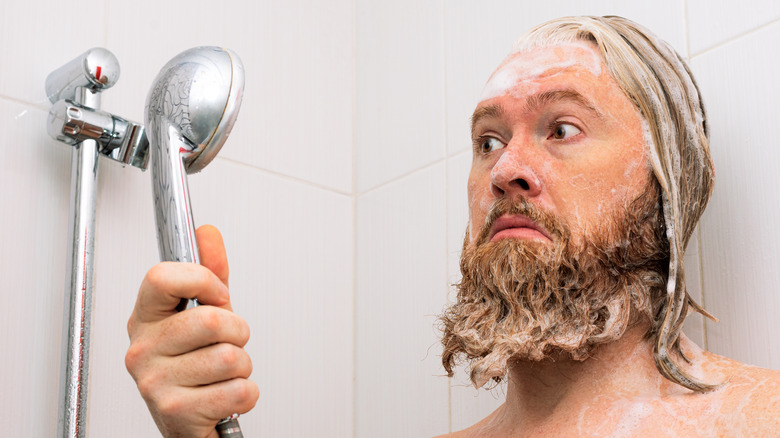How Long Should A Water Heater Really Last?
Many folks look forward to taking long, steamy showers in the morning, thanks to a properly functioning water heater, but having the water turn cold out of nowhere is probably one of the most irritating things to happen before you've had your first cup of joe.
Generally, the average water heater tank can last approximately eight to 12 years, and the tank-less versions can last up to 20 years, per Bob Vila. The outlet notes several factors can increase a water heater's longevity, including, maintenance, the type of heater (gas or electric), and the quality of the unit.
According to a report by Energy Star, "The majority of residential water heaters (54 percent) are natural gas models, and about 38 percent of [water heaters] are electric." Water heating represents roughly 10 percent of residential electricity consumption and about 15 percent of residential sector fuel use, per the report, so that's nothing to sneeze at. Energy Star also noted that a typical ideal temperature range in a 20 to 80-gallon water tank is 120 degrees Fahrenheit to 140 degrees Fahrenheit.
To keep your water heater in the best shape, we took a closer look at ways to get the most out of your water heater's lifespan.
Look for these signs to assess your water tank's health
There are some important signs to watch for when assessing how long your water heater should really last.
First, if you're hearing a loud rumbling noise or banging, that's a clear message that your water heater's time is running out. This issue typically happens because of calcium deposits that have formed at the bottom of the tank. One clever hack to extend your water heater's lifespan is to flush the sediment at least once a year, according to the Family Handyman. If you begin to notice discolored water that is yellow or red, this is a sign that your water heater has already started to rust, but replacing the anode rod every two to three years can make a big difference, per Bob Vila.
Another sign of a failing unit is the temperature dropping while showering — especially if your hot showers are lukewarm and short-lived, and if you live in an area with hard water, this can shave off two or more years of the water heater's lifespan, reports Bob Vila. Lastly, finding a pool of water underneath your water heater can be a major bummer and could indicate a leak or a cracked or corroded unit. If that's the case, it may be time to call in an expert for repairs or even a replacement.

